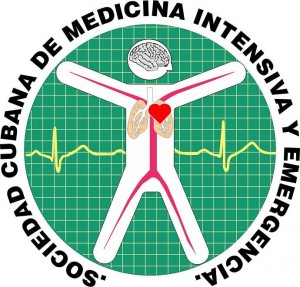Steroids in a case of respiratory distress syndrome
Keywords:
síndrome de distrés respiratorio agudo, esteroide, ventilación mecánica / acute respiratory distress syndrome, steroid, mechanical ventilation.Abstract
The use of steroids in acute respiratory distress syndrome has been a subject of frequent debate in intensive care units. We report a case of a patient admitted to Ivan Portuondo General Teaching Hospital with skin and soft tissue infection, which was complicated by a respiratory distress. Alveolar recruitment maneuvers were applied as ventilation strategy and no improvement was obtained with oxygenation. Metilprednisolona was indicated on the seventh day of diagnosis and favorable evolution was observed in less than 72 hours, allowing removal of mechanical ventilation. In conclusion, steroids should be indicated in prolonged dose, in a small subgroup of patients with unresolved or delayed respiratory distress, in the fibrotic or fibroproliferative phase, after the seventh day and before day 14 of the diagnosis.
Downloads
References
1. Sartori C, Allemann Y, Duplain H. Salmeterol for the prevention of high-altitude pulmonary edema. N Engl J Med [Internet]. 2002 [citado: 12/01/2018];346:1631-6. Disponible en: https://www.ncbi.nlm.nih.gov /pubmed/12023995
2. Irrazabal C, Capdevila A, Sosa C, Khoury M, Jorge M, Gherardi C. Síndrome de distres respiratorio agudo. Utilidad de los corticoides. Medicina [Internet]. 2004 [citado: 12/01/2018];64:250-6. Disponible en: https://www.scielo.org.ar/scielo.php?script=sci_arttext&pid...76802004000300013
3. Calvo E, Mozo MT, Latour J. Utilidad del empleo de esteroides en la disfunción pulmonar aguda. Medicina Intensiva [Internet]. 2009 [citado: 14/01/2018];33(6):293-6. Disponible en: https://scielo.isciii.es/pdf/medinte/v33n6/original2.pdf
4. Meduri G, Carratu P, Freire A. Evidence of biological efficacy for prolonged glucocorticoid treatment in patients with unresolving ARDS. Eur Respir J Suppl [Internet]. 2003 [citado: 10/02/2018];42:157-64. Disponible en: https://www.ncbi.nlm.nih.gov /pubmed?cmd
5. Meduri G, Bridges L, Shin M, Marik P, Siemieniuk R, Kocal M. Prolonged glucocorticoid treatment is associated with improved ARDS outcomes: analysis of individual patient’s data from four randomized trial and trial-level meta-analysis of the updated literature. Intensive Care Med [Internet]. 2016 [citado: 12/01/2018];42:829-40. Disponible en: https://www.ncbi.nlm.nih.gov/pubmed/26508525
6. Carrillo R, Sánchez M, Medveczky N, Elizondo S, Ramírez P, Sánchez H. Síndrome de insuficiencia respiratoria aguda, 50 años después. Med Crit [Internet]. 2017 [citado: 14/01/2018];31(4):246-54. Disponible en: https://www.medigraphic.com /pdfs/medcri/ti-2017/ti174k.pdf
7. Bihari S, Baley M, Bergsten A. Steroids in ARDS: to be or not to be. Intensive Care Med. 2016;42:931-3.
8. Thompson B, Ranieri V. Steroids are part of rescue therapy in ARDS patients with refractory hypoxemia. Intensive Care Med [Internet]. 2016 [citado: 10/02/2018];42(5):918-20. Disponible en: https://link.springer.com/article/10.1007/s00134-015-4162-x
9. Torres A, Sibila O, Ferrer M, Polverino E, Menendez R, Mensa J. Effect of corticosteroids on treatment failure among hospitalized patients with severe community-acquired pneumonia and high inflammatory response: a randomized clinical trial. JAMA [Internet]. 2015 [citado: 12/01/2018];313(7):677-86. Disponible en: https://www.ncbi.nlm.nih.gov/pubmed/25688779
10. Rios F, Iscar T, Cardinal-Fernandez P. What every intensivist should know about acute respiratory distress syndrome and diffuse alveolar damage. Rev Bras Ter Intensiva [Internet]. 2017 [citado: 12/01/2018];29(3):354-63. Disponible en: https://www.ncbi.nlm.nih.gov/pmc/articles/PMC5632979






